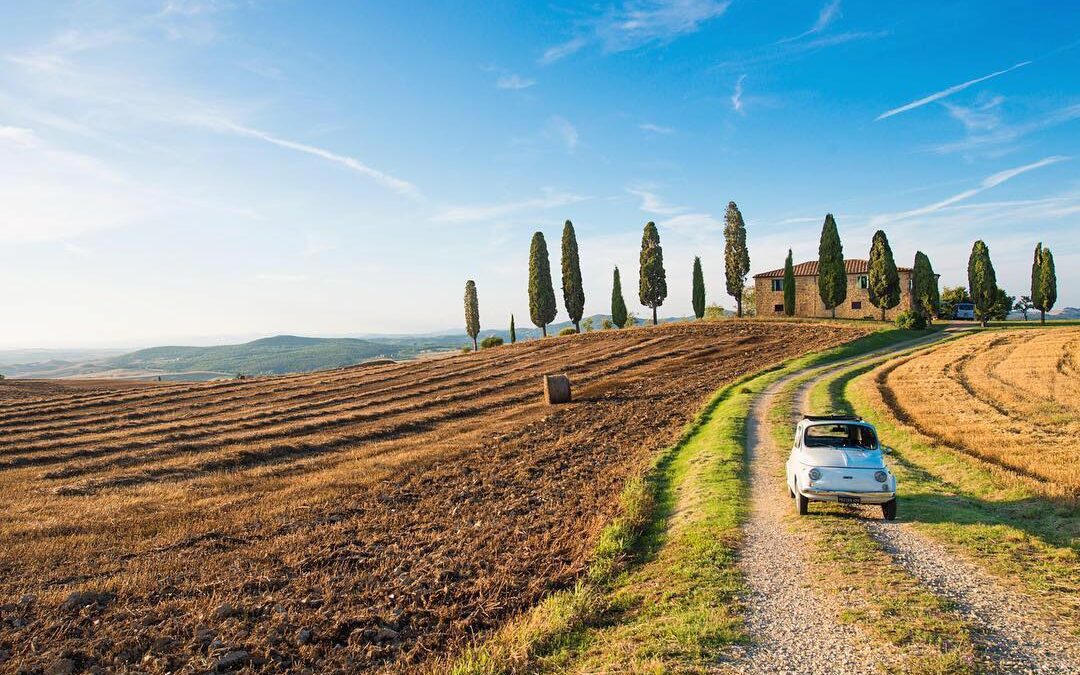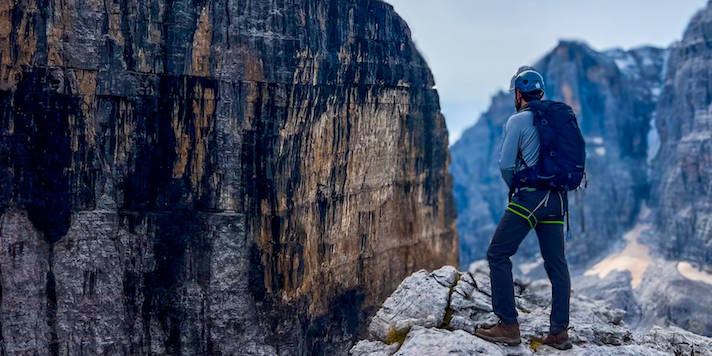No matter how much you wish you could return to life as we once knew it, the pandemic has changed virtually every facet of our lives. I’ve definitely felt it during my time on the road — which is most of the time since my boyfriend and I live and travel in a Winnebago Minnie.
The world has seen businesses limit hours, change their offerings, or disappear entirely. There are travel bans and restrictions on when and where people can go. And the air travel industry has been heavily compromised. As a result, you may feel stuck at home and unable to travel. Fortunately, there are still options — the best of which is a good old-fashioned road trip!
Having spent our last few years working and traveling on the road, we’re obviously big fans of the road trip. We’ve driven Route 66 and California’s PCH, the Blue Ridge Parkway, and other classic American routes. And once the pandemic lets up (whenever that might be), we’ve got high hopes for taking some epic road trips overseas. But we’re also aware that safety is never a given on the road; you have to stay alert, be respectful, and prepare for everything.
You can still get a change of scenery from the safety of your own vehicle — or a rented one (it doesn’t have to be an RV). Starting with some forethought, preparation, and a considerate mindset, you can road trip safely this summer and have lots of fun.
Create a Travel Safety Kit
Maintaining health and safety has become more important than ever. For families who wish to travel safely during these trying times, creating a travel kit filled with the essentials — food, water, medicine, supplies, car-repair essentials, etc. — is vital. It’s also a good idea to assemble a hygiene safety kit before you’re set to depart. Be sure to pack the following in a sealable bin:
- Multiple masks or face coverings
- Disposable gloves (latex, rubber, or nitrile)
- Large and small packages of disinfecting wipes
- Bleach
- Rubbing alcohol
- Large and small bottles of hand sanitizer
- Hand soap
- Dish soap
- Chemical-resistant spray bottles
- Disinfectant spray and wipes
- Antimicrobial laundry detergent
- Napkins and paper towels
- Trash bags
- Small sealable plastic bags
- Canvas tote bags (Don’t forget to wash them regularly.)
Compile Necessary Documents
Traveling during a pandemic can be unpredictable, so go prepared. Collect hard copies of your important documents before heading out on the road. Be sure to bring your car and health insurance cards, IDs, financial documents, and anything else you may need on the road. Keep a folder of digital copies in the cloud, too, so you can access your info from anywhere.
Choose Your Destination and Route Carefully
Among the surest ways to be safe on the road are choosing: A) a destination where you can balance social distancing with finding a degree of welcome and care, and B) the smartest route to get you there.
Keep in mind that many locals are wary of travelers potentially bringing the virus into their communities, so you might not receive a warm welcome. Ask yourself these kinds of questions: Is there a large elder population where you’re headed, or another especially vulnerable group? What does the health care infrastructure look like there, both for visitors and locals? What are the virus and travel regulations in the state/s you’re traveling through or to?
For now, it’s smartest to base your choice of destination on the likelihood of your staying safe, somewhat isolated, and within reach of authorities and adequate health care. For example, maybe now’s not the time to drive to rural Mexico, where you could unknowingly carry COVID-19 into a vulnerable region with poor health infrastructure. Trips that stay closer to home pose fewer risks.
Once you’ve chosen a destination and mapped out the way, research hospitals or clinics you can access along the route. Besides mapping them out, check your health insurance policy and read reviews to see whether there might be any snags in the care you could access. And in the meantime, make sure you’ve brushed up on your first-aid and CPR training, just in case you find yourself where medical services aren’t readily available.
It’s a Two-Way Street
As mentioned earlier, while safeguarding our own well-being, we also have a responsibility to respect the safety and comfort of others. The very nature of traveling means you’re visiting or passing through places where other people live. That means that wherever you go, it’s important to behave politely, like a guest in someone’s home.
A respectful traveler’s creed can help you remember to impose as little impact as you can on the places you visit — leaving them as you found them — and show patience, tolerance, and respect for the people you encounter along the way.
Respecting others is especially important now, when almost nobody feels safe in the context of a global pandemic. So before you leave, considering getting a COVID-19 test if it’s affordable. (If you can afford a vacation, you can probably afford to be sure you don’t spread the virus during your travels.) Pack multiple masks and wear them to show respect for local communities.
Pick Wide-Open Spaces
No matter where you travel during the pandemic, you’ll find social-distancing restrictions in place. You probably won’t be able to enjoy some tourist stops that are normally open. However, if you travel to an area that offers plenty of outdoor attractions and other wide-open spaces, you’ll likely find things to do and sights to see that are both safe and enjoyable.
Research overnight accommodations before you go. Private rentals are generally accepted as safer than heavily populated resorts or hotels, but wherever you go, be sure to choose accommodations in places that take seriously all recommended precautions against virus spread.
Hope for the Best, Prepare for the Worst
Even in the best of times, staying safe on the road requires being prepared for the worst. From our years on the road, we’ve learned that the universe is creative: Yes, tires go flat and batteries die — but also, birds fly straight into the windshield, landslides block the road, plus many other things that we never even imagine until they’ve happened.
Make sure you have a spare tire and a well-charged battery, along with jumper cables or a portable charger. A car-repair kit is a great thing to have on hand. You may also want to sign up for emergency roadside service, to ensure yourself a way out of more troublesome situations. And always make sure someone knows where you are, or at least where you’re headed.
If you’re hitting the open road in the near future, you’ll need to embrace the changes that have been thrust upon us as a result of the pandemic. Although many people are reluctant to travel, it can be perfectly safe to do so, provided that you adhere to the guidelines and restrictions put in place to keep you and your family — and people in the places you’re visiting — safe. Then you can roll down the windows, crank your favorite music, and slip off your shoes for a barefoot drive to a fantastic vacation!
Unsettled is a global community for those who live and work differently.
Growth | Meaning | Adventure



